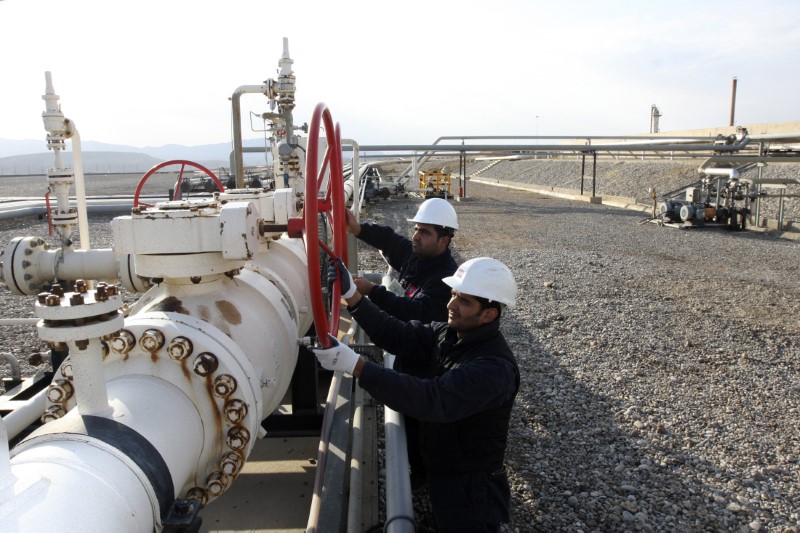Investing.com - Oil prices rose 1% on Wednesday after U.S. crude stockpiles fell by 10.84 million barrels last week, almost three times the level forecast. But the gains faded in afternoon trading because a number of analysts said the drawdown distorted by production shutdowns forced by Hurricane Barry.
Analysts had forecast a stockpile draw of about 4 million barrels for the week to July 19 after a decline of 3.1 million barrels in the previous week.
The EIA report also showed that gasoline inventories decreased by 226,000 barrels, compared to expectations for a draw of 730,000 barrels. Distillate stockpiles rose by 613,00 barrels, compared to forecasts for a drop of 499,000 barrels.
New York-traded West Texas Intermediate crude was unchanged at $56.77 a barrel at 1:20 p.m. ET (18:15 GMT).
London-traded Brent, the benchmark for oil outside of the U.S., climbed 26 cents, or 0.4%, to $64.09. It had traded as high as $64.66.
Analysts attributed the larger-than-expected drawdown to fallout from Hurricane Barry, which forced the shutdown of more than half of the regular oil production from platforms in the U.S. Gulf of Mexico for at least two days before making landfall on the central Louisiana coast on July 13.
“Hurricane Barry has shaken up the data for a second week with lower production and stymied imports leading to a near-11 million barrel draw,” said Matthew Smith, analyst at New York-based crude cargoes tracker Clipperdata.
John Kilduff, founding partner at New York energy hedge fund Again Capital, agreed.
“Obviously, the effects of Hurricane Barry drove the decline and the plunge in U.S. production on the week,” Kilduff said.
But both Smith and Kilduff said that despite exaggerated effects of the hurricane, the weekly dataset released by the EIA was fairly bullish for oil.
"Imports and exports of crude oil held at elevated levels,” said Kilduff. “Gasoline demand was quite strong on the week, as well.”
Smith noted that “inventories are now down 40 million barrels from their 2019 peak after six consecutive weekly declines.”
